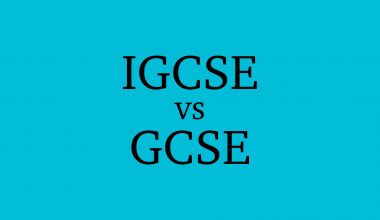Choosing the right A-level subjects can be a crucial decision for many students. The subjects you choose to study can have a significant impact on your future academic and career prospects.
With so many options to choose from, it can be overwhelming to decide which subjects are best suited to your interests and goals.
In this article, we will explore the different factors to consider when selecting your A-level subjects, as well as common mistakes to avoid in the decision-making process. If you are aiming for university admission or pursuing a specific career path, choosing the right A-level subjects is key to your success.
Table of contents
- What are T Level Subjects?
- How Do T-Level Subjects Work?
- What are T Level Subjects Used For?
- What Courses are Available for T Level?
- Who is Qualified For T-Level Subjects?
- What is the Difference Between T and A Levels?
- Which Universities Accept T-Levels in the UK?
- T-Levels vs A-Levels: Which One is Right for You?
- Frequently Asked Questions
- Conclusion
- References
- Recommendations
What are T Level Subjects?
T Level subjects are specialized vocational courses designed to provide students with hands-on skills and knowledge in specific career fields. They are equivalent to A-levels in terms of academic standing but focus more on practical training and work experience.
T Levels were introduced in the UK to bridge the gap between education and employment, preparing students for a wide range of industries such as healthcare, digital technology, construction, and more.
These courses typically last two years and combine classroom learning with substantial industry placements, ensuring students gain real-world experience. T-Levels are a fantastic option for those who prefer a practical approach to learning and want to be well-prepared for their chosen career paths.
Read: T-Levels Vs BTECs: Exploring the Pros and Cons
How Do T-Level Subjects Work?
T Level subjects work by blending classroom education with substantial on-the-job training. These two-year vocational courses are designed to equip students with practical skills and knowledge directly applicable to their chosen careers. Here’s how they work:
- Core Content: Each T Level includes a core set of subjects relevant to the industry, ensuring students build a strong foundation in their field.
- Specialization: Students can choose a specialization within their chosen industry, allowing for more tailored learning experiences.
- Industry Placements: One of the key features is the mandatory industry placement, where students gain hands-on experience in a workplace related to their field, helping them apply what they’ve learned in a real-world setting.
- Classroom Learning: Alongside placements, students attend classroom lessons to deepen their theoretical knowledge.
- Assessment: Assessment includes exams, practical assessments, and workplace evaluations.
T-Levels offer a practical and comprehensive approach to preparing students for successful careers.
What are T Level Subjects Used For?
T Level subjects serve as a bridge between education and employment, preparing students for a multitude of practical careers. These vocational courses are used to:
- Skill Development: T Levels equip students with specific, job-ready skills in areas like healthcare, digital technology, construction, and more.
- Workforce Readiness: They ensure students are ready for the workforce, as they include mandatory industry placements that provide valuable real-world experience.
- Career Advancement: T Levels can be a stepping stone to further education or immediate employment in their chosen field.
- Meeting Industry Demands: They address the demand for skilled workers in various industries, helping fill critical job gaps.
- Personal Growth: T Levels foster personal development by building confidence, problem-solving abilities, and teamwork skills.
In essence, T Level subjects are used to prepare students for successful, fulfilling careers by providing them with both the knowledge and practical experience they need to excel in their chosen fields.
Also, read: What Are A-Level Qualifications? Everything You Need To Know About The A-Levels
What Courses are Available for T Level?
A wide range of courses are available for T-Levels, catering to diverse career interests and industry needs. Some popular T-Level courses include:
T Level in Digital:
This course is designed for those interested in technology and computing. It covers a broad range of topics including programming, network management, cybersecurity, and IT support. Students gain hands-on experience with cutting-edge technology and develop skills that are highly sought after in the digital industry.
T Level in Health:
This T Level prepares students for careers in the healthcare sector. It includes pathways like nursing, healthcare support, and dental nursing. Students learn about patient care, medical procedures, and health and safety standards. The mandatory industry placement in hospitals or clinics gives them valuable real-world experience.
T Level in Construction:
This course offers various pathways in construction, such as building services engineering, design, surveying, and planning. Students learn about construction techniques, project management, and sustainable building practices. The industry placement allows them to work on construction sites, applying their knowledge in practical settings.
T Level in Education and Childcare:
This T-Level is ideal for those interested in working with children and young people. It offers two pathways: early years education and supporting teaching and learning. Students develop teaching skills, learn about child development, and gain practical experience in educational settings.
T Level in Science:
This course is for students interested in laboratory work and scientific research. It covers various aspects of science, including biology, chemistry, and physics. Students learn laboratory techniques, data analysis, and research methodologies, and they have the opportunity to work in real laboratory environments.
T Level in Engineering:
Engineering T Levels provide pathways in mechanical, electrical, and electronic engineering. Students acquire skills in designing, building, and maintaining engineering systems. The course emphasizes problem-solving and practical engineering projects.
T Level in Business and Administration:
This T-Level focuses on the world of business. Students explore areas like finance, human resources, marketing, and management. They develop essential skills for working in office environments and gain insights into business operations.
T Level in Legal:
This course prepares students for roles in the legal services sector, such as legal executive or paralegal. Students learn about legal processes, case management, and client communication. The industry placement allows them to experience legal work firsthand.
Who is Qualified For T-Level Subjects?
T-Level subjects are typically designed for students who have completed their GCSEs or equivalent qualifications. To be qualified for T Level courses, students generally need to meet the following criteria:
- Age: Usually, students are eligible to enroll in T Levels if they are 16 years old or older.
- GCSEs: Many T Level courses have specific entry requirements, often including minimum GCSE grades in subjects relevant to the chosen course.
- English and Maths: Some T Level subjects may require a certain level of proficiency in English and maths, as these skills are essential for many vocational careers.
- Interest and Aptitude: While not a formal qualification, students should have a genuine interest in the chosen field and the aptitude to excel in practical, hands-on learning.
Specific eligibility criteria may vary by course and institution, so it’s essential for prospective students to check the specific requirements for their chosen T Level program.
Also, read: Can You Do A Levels at Any Age in College?
What is the Difference Between T and A Levels?
T Levels and A Levels are both post-GCSE qualifications in the UK, but they differ significantly in their structure, content, and outcomes:
- Focus: T Levels are vocational qualifications with a strong emphasis on practical, industry-specific skills. A Levels, on the other hand, are academic qualifications that delve deep into theoretical subjects.
- Course Duration: T Levels typically span two years and include industry placements. A Levels usually take two years as well but involve intensive classroom-based learning.
- Assessment: T Levels combine coursework, exams, and workplace assessments. A Levels rely primarily on written exams.
- Career Path: T-Levels prepare students for immediate entry into the workforce with job-ready skills. A-Levels are often a pathway to university.
The choice between T-Levels and A-Levels depends on an individual’s career aspirations and learning preferences.
Which Universities Accept T-Levels in the UK?
T Levels are relatively new qualifications, and not all universities in the UK have established policies for accepting them for admission. However, T-Levels are designed to offer pathways into both employment and further education.
Some universities and colleges have started recognizing T-Levels as qualifications for admission into specific programs.
Below are some of them:
- Abertay University
- Aberystwyth University
- Anglia Ruskin University
- Askham Bryan College
- Aston University
- Bangor University
- Barnsley College
- Bath Spa University
Note that these are just a few of the universities from an extensive list of universities that accept T-levels in the UK. Also, note that the acceptance of T-Levels may vary by university and by specific programs within those universities.
Admissions policies and recognition may have developed further since my last update. It’s crucial for prospective students to check with the universities they are interested in for the most up-to-date information on T Level acceptance and admission requirements.
Read Also: How Many UCAS Points Do You Get For T-Levels?
T-Levels vs A-Levels: Which One is Right for You?
Choosing between T-Levels and A-levels depends on your educational and career goals. A-Levels are academically rigorous and are typically chosen by those planning to pursue higher education at universities. They provide a broad knowledge base in subjects like science, arts, and humanities.
On the other hand, T Levels are vocational, focusing on specific industries and practical skills. They are ideal if you prefer hands-on learning and aspire to enter the workforce directly after education. T Levels often include industry placements, ensuring you gain real-world experience.
Your choice should align with your interests and career aspirations. If you’re passionate about a particular industry and eager to develop practical skills, T Levels may be the right choice. If you’re more inclined towards academic study and university, A-Levels might suit you better.
Frequently Asked Questions
T Levels stands for “Technical Levels.” They are a vocational qualification in the UK, offering technical and practical training for various career paths.
The superiority of A Levels or T Levels depends on individual goals and career interests. A Levels are more academic, while T Levels offer vocational skills. The choice should align with your desired career path and learning style.
T Levels are equivalent to three A Levels and are designed to provide students with advanced technical and practical skills for specific career paths in the UK.
Conclusion
Choosing A-level subjects is a significant decision that can shape your academic future and career prospects. Consider your interests, strengths, and aspirations when making your choices to ensure you have an enjoyable and fulfilling experience.
Remember to seek advice from teachers, parents, and careers advisors to make informed decisions that align with your goals.
Embrace the opportunity to explore new subjects and challenge yourself academically – this will help you grow personally and academically.
References
- gov.uk – Introduction of T Levels
- educationhub.blog.gov – T Levels: What courses are available?
- thinkstudent.co.uk – T-Levels vs A-Levels: Which One is Right for You?





